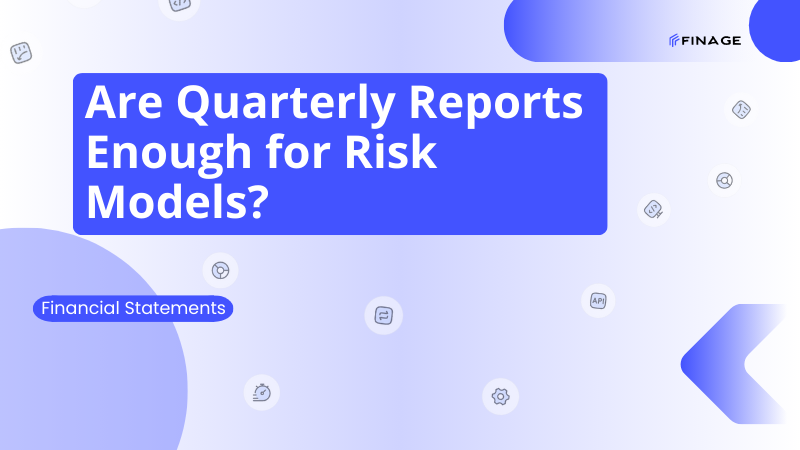The Future of APIs in the Finance Sector
4 min read • March 16, 2021

Introduction
Along with the developing technology, the financial service sector is also changing and developing to keep up with technology. According to researches, nearly half of the adults who are involved with technology in the UK are actively using the services provided by at least one Fintech company and over 20 million people actively using digital banking applications.
Thanks to the ease of use and accessibility of digital banking applications, people can make their transactions comfortably. In addition, due to the increasing awareness of customers and their demand for personalized features, many financial companies have started to offer various products and services to their customers by using APIs.
APIs stand out
The financial service industry has become one of the fastest changing sectors in the world in recent years. This is because customers demand more transparency, ease of payment and security. In addition, financial firms are more willing to transform their product creation and development methods as their competitors adapt to change and increase their customer base
Speed and agility have been the biggest need of development for both customers and employees. For this reason, APIs that allow data to be combined without the need to combine different systems have started to be at the center of this change.
Financial service APIs can provide communication by establishing a bridge between software without the cost of changing the infrastructure for the digital transformation needed by financial companies in terms of products and services. In this way, both time and money can be saved. Thanks to finance APIs, the speed of launching of new products and therefore the rate of return on investments increases.
Thanks to APIs, different digital experiences and product improvements can be made according to different needs. For example, most of the companies that issue credit cards are capable of automatic fraud detection. If an unusual situation is detected in a customer's account, APIs integrate with communication channels to send an SMS to the customer.
Banks wishing to provide innovative customer experience have started to combine branded banking applications with different services. For example, a European bank has combined its branded banking application with a data collection application to securely collect, manage and transmit personal data required for financial products such as mortgages.
Revealing the potential of APIs
The potentials of APIs have not yet been fully realized by many companies. In particular, the areas where financial companies can benefit from APIs are quite wide. They can benefit from APIs in many areas such as providing all digital services, facilitating the work flow by connecting different software, evaluating the situation by looking at the work flow from a broad perspective, and product development.
Business partners and application developers with whom financial companies work together can use APIs that provide innovative product development as well as their basic services. Companies with a robust API infrastructure can filter the data they want at certain time intervals and get rid of information pollution and access only data. This situation is very advantageous for both financial companies and business partners.
Digital services APIs
Finance companies often use APIs to develop their web and mobile applications, to provide the bank's product information, locations and rates.
An example of the financial services API offered by Finage is the Account and Transactions API. With this API, developers can obtain anonymous Finage customer account information with client permission. In addition, with the ATM Locator API, users and developers can access the location information of the ATMs they use.
Partner integration APIs
This API is accessible only to trusted developer partners. Digital payments, transfer transactions between financial companies and more complicated financial transactions are carried out thanks to the business partner integration APIs. APIs often integrate software applications and data used in these software.
Partner infrastructure
Another integration we will see in the digitalizing world will be between businesses and marketplaces. For example, it may be to integrate banks and e-commerce sites or offer lending options so that sellers can more easily access online payments.
API ecosystem
Thanks to the financial companies that establish the API ecosystem, a new source of income is offered to business partners and developers. At the same time, thanks to the advanced API infrastructure, financial companies can improve their products and services. APIs can create new product categories by collecting, analyzing and filtering data from interconnected systems
Financial companies that have established a robust and reliable API governance system can view and manage all the features of the APIs they use. Thanks to different APIs that serve different purposes, a lot of data is produced. Thanks to these data, regulations in the financial sector and data tracking can be done in detail.
As a result
Through APIs, innovative products can be produced in the finance sector, service quality can be increased and customer experiences can be improved. Finance companies can use APIs not only for financial data management, but also for monitoring and managing general work flows. APIs should not be seen as just technical software tools. They are product offerings that will increase the development and income of companies.
Apart from integrating APIs into systems, API management is also very important. Business intelligence (BI) tools are needed to analyze the data produced by the API ecosystem and to draw conclusions from these analyzes and determine company strategies correctly.
Claim Your Free API Key Today
Access stock, forex and crypto market data with a free API key—no credit card required.

Stay Informed, Stay Ahead
Finage Blog: Data-Driven Insights & Ideas
Discover company news, announcements, updates, guides and more


